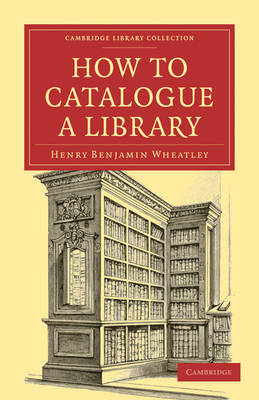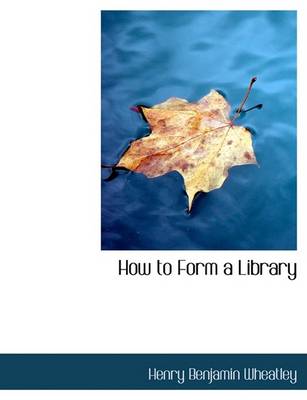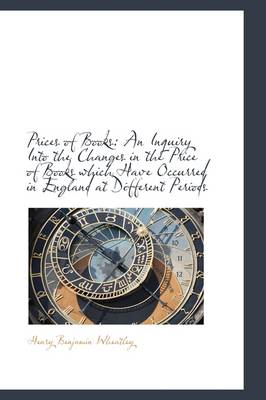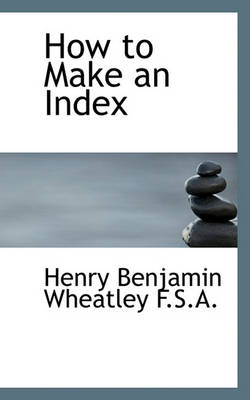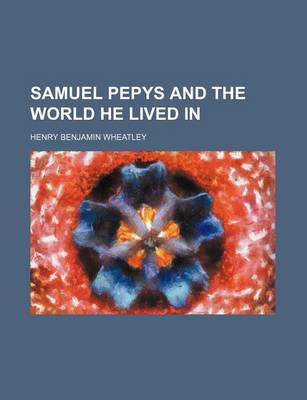Cambridge Library Collection - History of Printing, Publishing and Libraries
7 total works
Henry Benjamin Wheatley (1838-1917) was a prolific writer on bibliography, literature and the arts. As founder of the Index Society, and editor of The Bibliographer, he was also involved in the foundation of the Library Association. In that context he wrote several works on library topics, and this volume contains two works on bookbinding, Remarkable Bindings in the British Museum (1889) and Bookbinding Considered as a Fine Art, Mechanical Art and Manufacture (1882). The former contains descriptions and illustrations of 62 examples of bookbinding then in the British Museum library, notable as beautiful examples from different countries and periods, or different materials, or for their historic interest. The second piece was a paper read to the Society of Arts in 1880. It outlines the history of bookbinding styles in different countries, and then discusses it both as an art form and from a practical point of view, with illustrations.
Henry Benjamin Wheatley (1838-1917) was a bibliographer and editor with a prodigious output of books and articles to his name. Brought up after the death of both his parents by his brother Benjamin Robert, himself a skilled bibliographer and cataloguer, Henry worked for many years for the Royal Society and the Royal Society of Arts; he was a founder member of the Library Association, and produced an edition of Pepys' diary which was not superseded until the 1970s. This 1879 work is one of two which he produced on the subject of indexing, and which led him to become known as 'the father of British indexing': the Wheatley Medal awarded by the Society of Indexers is named after him. This book shows the development of indexes, gives rules for their compilation and provides a bibliographical list of important indexes and concordances. It remains a fascinating introduction to the subject.
Henry Benjamin Wheatley (1838-1917) was a prolific writer on bibliography, literature and the arts. As founder of the Index Society, and editor of The Bibliographer, he was also involved in the foundation of the Library Association. In that context he wrote several works on library topics. How to Catalogue a Library (1889) was aimed at smaller library collections, as existing systems, such as the manuals of the British Museum library or the Library of Congress, were too elaborate for smaller collections. Wheatley begins by defining the differences between catalogues, indexes and bibliographies, and then compares the existing rules. He discusses the physical form of catalogues and lists the minimum requirements for the catalogue of a small library. He also discusses cataloguing manuscripts and cross-referencing, and provides a useful index of Latin place names. The book contains much on the theory of organisation of information still of relevance today.
Henry Benjamin Wheatley (1838-1917) was a prolific writer on bibliography, literature and the arts. As founder of the Index Society, and editor of The Bibliographer, he was also involved in the foundation of the Library Association. In that context he wrote several works on library topics. How to Form a Library was published in 1886, when libraries were spreading rapidly throughout England. The book provides advice on the selection of material for different kinds of libraries and audiences, and suggests a list of core works. Although the choices reflect the period in which it was written - a point Wheatley makes about earlier lists - it nonetheless has a value in giving insight into the intellectual interests of the day. He was firmly against librarians acting as moral censors, and although his list of required reading is unlikely to be followed today, the book contains much valuable information on library history.
A prolific author and bibliographer, Henry Benjamin Wheatley (1838-1917) wrote or edited dozens of works during a distinguished literary career. First published in 1898 as the fourth volume in Richard Garnett's 'Library Series', Prices of Books traces the market value of books in England from the seventeenth century to the late nineteenth century. Wheatley recounts the history of booksellers, and manuscript and book pricing in England, providing detailed analyses of significant auction sales over three centuries. He also devotes chapters to the pricing history of Shakespeare's works and other notable English publications. Serving as a fascinating micro-history of England's reading and book-collecting habits, this work will appeal to those interested in antiquarian culture and the history of the book. Several other works by Wheatley are also reissued in the Cambridge Library Collection, including the delightful Literary Blunders (1893).
Henry Benjamin Wheatley (1838-1917) was a bibliographer and editor with a prodigious output of books and articles to his name. Brought up after the death of both his parents by his brother Benjamin Robert, himself a skilled bibliographer and cataloguer, Henry worked for many years for the Royal Society and the Royal Society of Arts; he was a founder member of the Library Association, and produced an edition of Pepys' diary which was not superseded until the 1970s. This work is one of two which he produced on the subject of indexing: the Wheatley Medal awarded by the Society of Indexers is named after him. This book sets out the rules and practicalities of indexing, and also contains examples of how not to make an index; it was for many years the text to which all professional indexers referred, and still makes fascinating reading today.
Henry Benjamin Wheatley (1838-1917) was an eminent bibliographer, author and editor who served as assistant secretary to the Royal Society of Arts between 1879 and his retirement in 1908. He also had a particular interest in the life of Samuel Pepys (1633-1703), founding the Samuel Pepys Club in 1903 and producing the most reliable edition of Pepys' diary until the Latham edition (1970-1983). This volume, first published in 1880, contains a detailed biography of Pepys. Using contemporary sources, Wheatley discusses Pepys' achievements during the period his diary was kept, his progression in the Navy Board and his resignation in 1689. Wheatley also provides fascinating descriptions of Restoration society, manners and customs, exploring the historical context of Samuel Pepys' life through discussions of various incidents taken from his diary. This volume remains a standard reference for the historical context of Pepys' diary and life.

